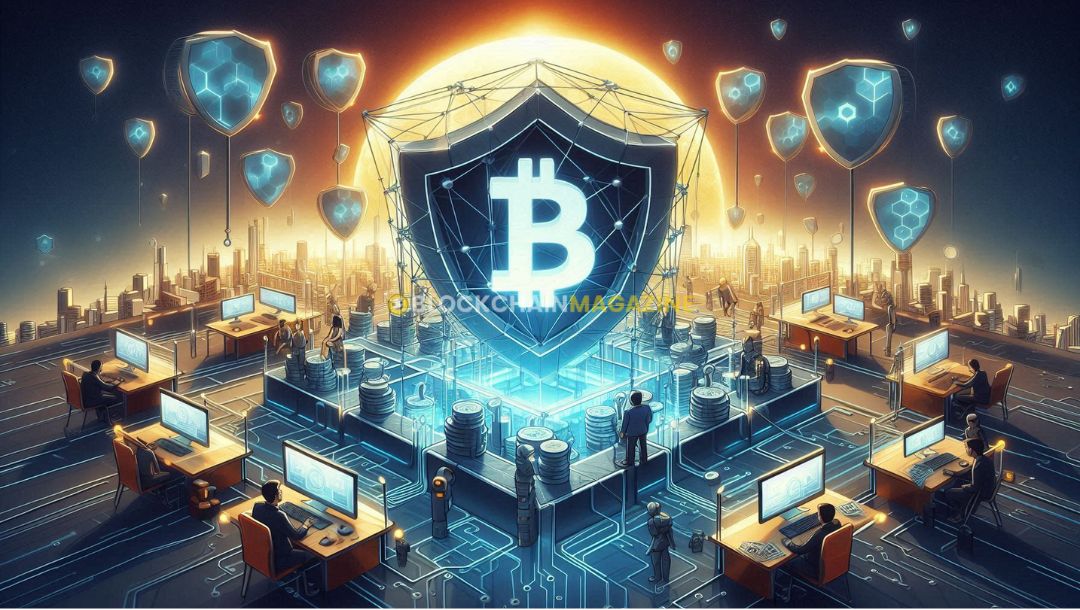Ironblocks’ ‘Venn’ Network: Safeguarding Blockchains from Malicious Transactions
Israeli crypto firm Ironblocks is pioneering a novel security infrastructure named Venn, designed to scrutinize blockchain transactions pre-execution, potentially thwarting multimillion-dollar cyber-attacks and breaches.
Venn, an innovative security product, offers its clients—ranging from lending protocols to other decentralized finance (DeFi) entities—a vigilant oversight mechanism in exchange for a nominal fee. Ironblocks’ CEO, Or Dadosh, highlights that Venn will leverage a decentralized network of node operators to collectively monitor and authenticate transactions, ensuring no illicit activities bypass the system.
Unlike traditional blockchains like Ethereum, where node operators simply record transactions onto the blockchain’s ledger, Venn’s operators will function as gatekeepers, assessing the legitimacy of each transaction before it reaches finality. This proactive approach aims to mitigate the pervasive issue of crypto-related crimes, where projects frequently suffer substantial financial losses due to fraud, theft, and economic attacks—events that are irreversible once recorded on the blockchain.
Venn introduces a “review and revoke” mechanism rather than a retroactive correction capability. Transactions scrutinized by Venn have yet to be finalized, remaining in a pre-commitment phase until they are vetted. If deemed suspicious, Venn’s operators can intercept and halt the transaction, alerting security teams to investigate. Conversely, legitimate transactions proceed seamlessly to execution on the main blockchain.
Read more: Kraken Faces Cyber Extortion After $3M Exploit: A Security Saga
Although Venn is not yet operational, Dadosh elaborated on its functionality in an interview with CoinDesk. End-users won’t need to interact directly with Venn; instead, transactions initiated on a Venn-affiliated protocol will automatically be subject to Venn’s scrutiny, funded by a portion of the gas fee. This process is swift, typically completing within 100-200 milliseconds, and occurs discreetly, thus preventing opportunities for front-running or other manipulative strategies.
Suspicious transactions identified by Venn will be frozen, pending investigation by security teams, while regular transactions proceed unimpeded. The overarching goal is to fortify asset protection by preemptively blocking malicious transactions from execution.
Slated for a testnet launch in the upcoming weeks, Venn’s security framework will be fortified through restaking, leveraging the EigenLayer ecosystem’s shared economic security. Dadosh mentioned that several renowned lending protocols are early adopters of Venn, although he refrained from disclosing specific names.
Clients will have considerable discretion in determining which transactions to funnel through Venn, potentially adding extra security checks beyond Venn’s baseline oversight. These additional measures will be managed by the security firms operating the nodes.
Ironblocks, the originator and maintainer of Venn, will not monopolize the network’s benefits. Instead, Venn will eventually be overseen by a security council, distributing its fees among all participating operators. While Dadosh was non-committal about the possibility of issuing a Venn token, he did indicate that a points-based program recognizing network usage is under consideration—a common precursor to token releases in the crypto space.
Stay informed with daily updates from Blockchain Magazine on Google News. Click here to follow us and mark as favorite: [Blockchain Magazine on Google News].
Get Blockchain Insights In Inbox
Stay ahead of the curve with expert analysis and market updates.
latest from tech
Disclaimer: Any post shared by a third-party agency are sponsored and Blockchain Magazine has no views on any such posts. The views and opinions expressed in this post are those of the clients and do not necessarily reflect the official policy or position of Blockchain Magazine. The information provided in this post is for informational purposes only and should not be considered as financial, investment, or professional advice. Blockchain Magazine does not endorse or promote any specific products, services, or companies mentioned in this posts. Readers are encouraged to conduct their own research and consult with a qualified professional before making any financial decisions.

 Bitcoin
Bitcoin  Ethereum
Ethereum  XRP
XRP  Tether
Tether  Solana
Solana  Dogecoin
Dogecoin  USDC
USDC  Cardano
Cardano  Lido Staked Ether
Lido Staked Ether  TRON
TRON  Avalanche
Avalanche  Sui
Sui  Wrapped stETH
Wrapped stETH  Toncoin
Toncoin  Stellar
Stellar  Shiba Inu
Shiba Inu  Chainlink
Chainlink  Wrapped Bitcoin
Wrapped Bitcoin  Hedera
Hedera  WETH
WETH  Polkadot
Polkadot  Bitcoin Cash
Bitcoin Cash  LEO Token
LEO Token  Uniswap
Uniswap  Litecoin
Litecoin  Pepe
Pepe  Hyperliquid
Hyperliquid  Wrapped eETH
Wrapped eETH  USDS
USDS  NEAR Protocol
NEAR Protocol  Ethena USDe
Ethena USDe  Aptos
Aptos  Internet Computer
Internet Computer  Aave
Aave  Mantle
Mantle  Ethereum Classic
Ethereum Classic  POL (ex-MATIC)
POL (ex-MATIC)  Cronos
Cronos  Monero
Monero  Render
Render  MANTRA
MANTRA  Bittensor
Bittensor  Dai
Dai  Artificial Superintelligence Alliance
Artificial Superintelligence Alliance  Filecoin
Filecoin  Arbitrum
Arbitrum  Tokenize Xchange
Tokenize Xchange 



